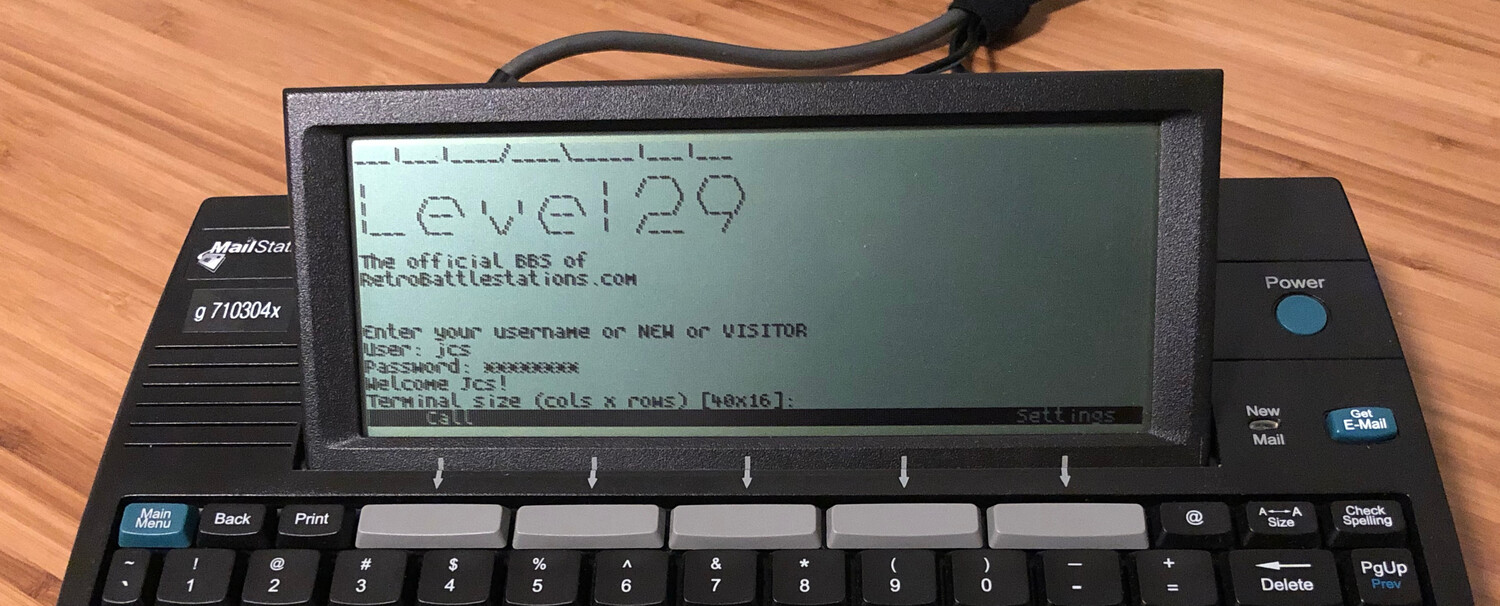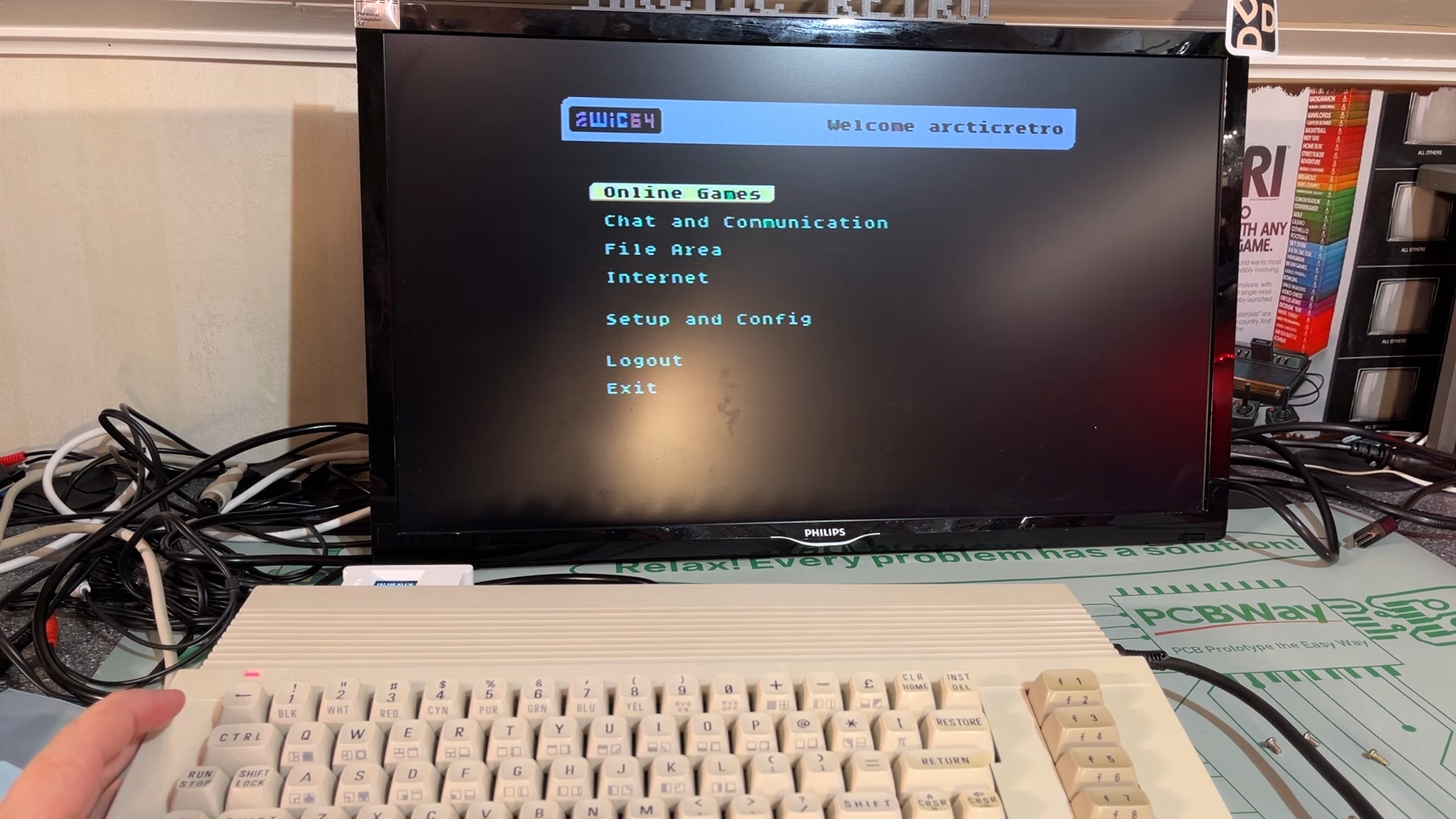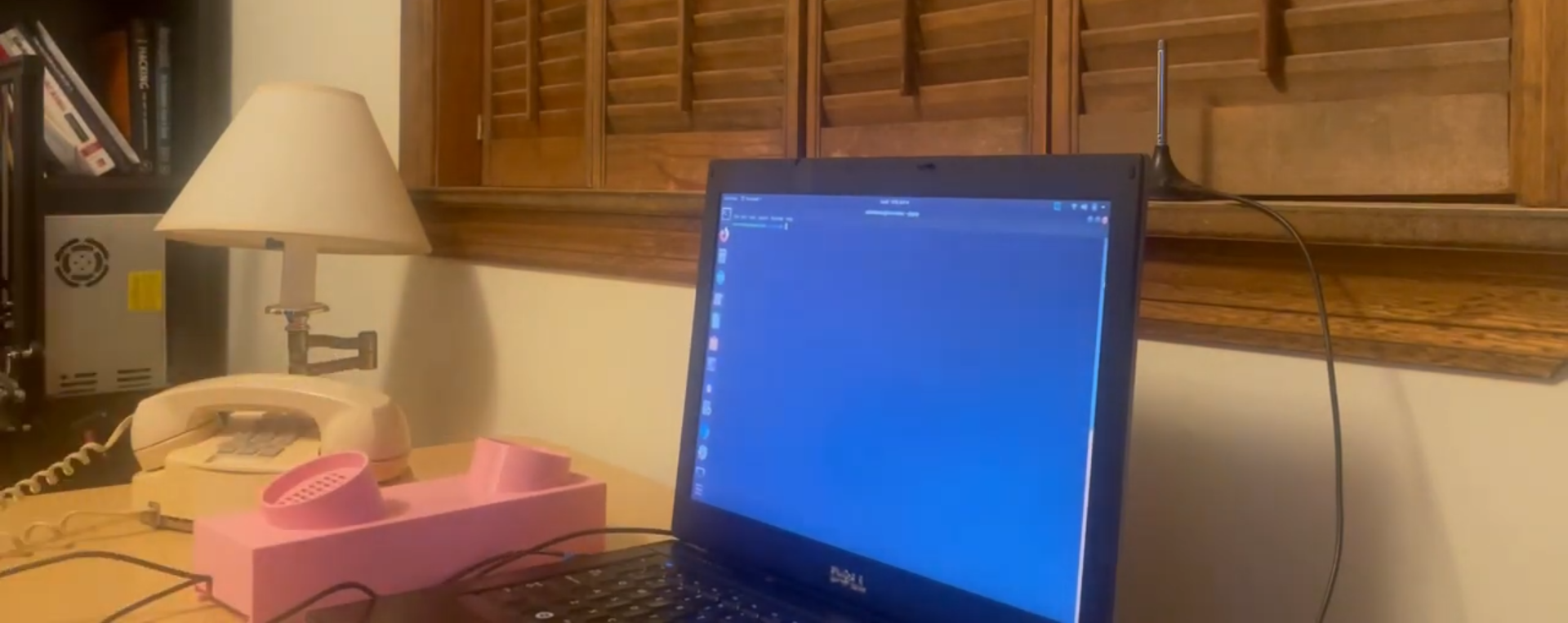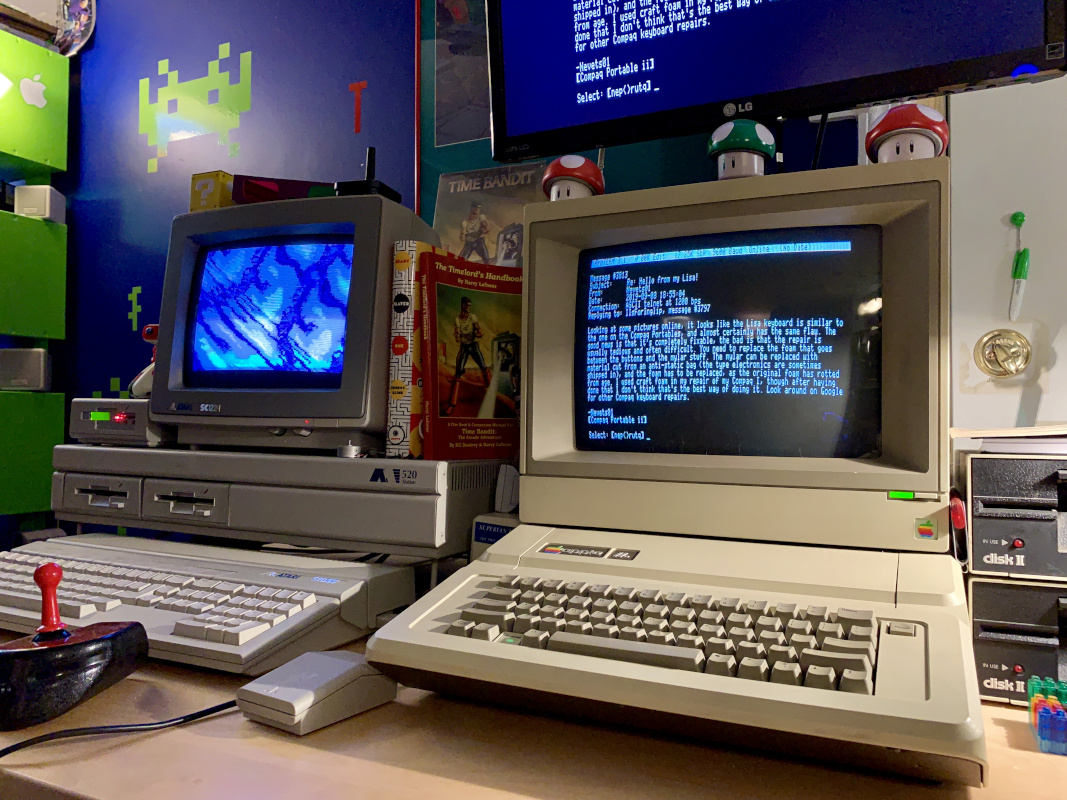One person like that
#bbs

Bis auf das #BBS habe ich alle Nodes wieder installiert. Auch #MeshInfo mit der Map. Diesmal allerdings mit der Meshtastic Version 2.5.6
Es hat mir eben keine Ruhe gelassen ¯\_(ツ)_/¯
Soweit scheint jetzt alles zu laufen, auch die Warnmeldungen für MV, und ich hoffe, das bleibt auch erstmal so.
Im Nachhinein habe ich auch festgestellt, dass der Zugriff auf den #Matrixkanal nachträglich hätte geändert werden können – sorry für das Löschen des ersten.
Hier der Link zum Aktuellen: https://matrix.to/#/#mv-mesh-plus.net:matrix.org
Um Spam vorzubeugen, werde ich aber vermutlich bei einer längeren Abwesenheit, das Beitreten auf »einladungsbasiert« schalten. Dann brauche ich mir keine Gedanken über Spammer zu machen 😀
2 Likes
2 Likes
Ich bin zurzeit von Meshtastic schon “ein wenig” enttäuscht 🫤
Die Fehler mit den #T-Decks werden nicht behoben, die » #RouterClient « Konfiguration abgeschafft (dadurch gibt es bei meinen #T-Beams wie früher wieder Internetabbrüche), auch die #Android-App verliert wieder einige sinnvolle Features (Anzeige der Koordinaten und Hardware), und als Krönung, wird #MQTT quasi abgeschafft, und so einzelne Nodes isoliert.
Seid mir nicht böse, aber das macht es mir schon schwer, das alles nachzuvollziehen und zu akzeptieren.
Das von mir aufgebaute und vorher funktionierende Netz mit der #BBS und #Meshinfo verliert so seinen Sinn und Aufgabe und wird auf #LoRa reduziert, was vielleicht nicht so schlimm wäre, wenn es vorher diese Möglichkeiten nicht gegeben hätte 🙄
Ich werde mich erst einmal für eine Weile von Meshtastic zurückziehen und hoffen, dass dieser Abwärtstrend vielleicht irgendwann ein Ende finden wird.
2 Likes
1 Shares
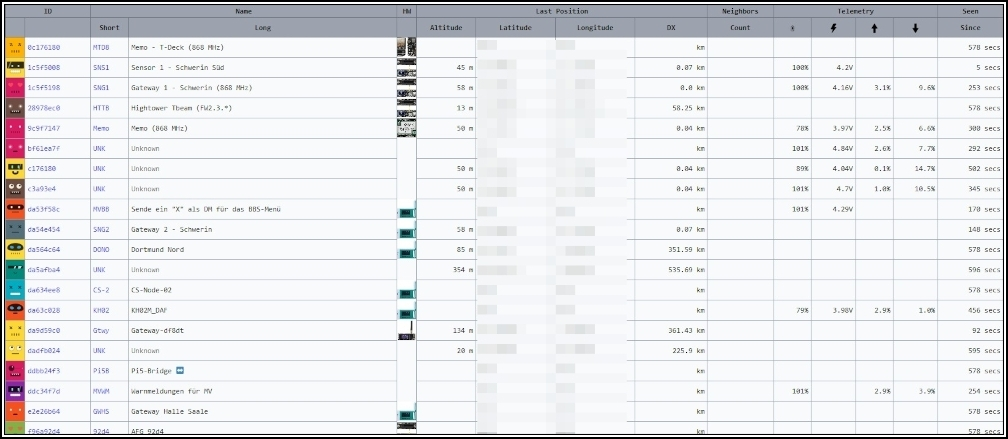
Mit dem, was ich mir vorgenommen hatte, und was auch bereits machbar war, bin ich jetzt durch.
Den #Raspberry Pi 5 als »Alleinunterhalter« aufzusetzen, hat schlussendlich geklappt.
Es laufen jetzt darauf: die Warnmeldungen für MV (WMMV), das #BBS (MVBB), der #Mosquitto #MQTT #Server und seit heute auch noch #Meshinfo. Es war ein wenig herausfordernd, die #Ports einzurichten, aber es läuft jetzt alles rund und störungsfrei 😀
Ab Morgen kehrt dann wieder ein wenig Ruhe bei mir ein, und ich höre jetzt schon #Natur und Wildnis rufen 😉
(Bildbeschreibung: Screenshot der Meshtastic Meshinfoseite.)
2 Likes

Ich hatte gestern den Entwickler des #BBS gefragt, ob er den Menüpunkten nach dem Lesen einer Mitteilung nicht den Punkt "R" wie Reply (Antworten) hinzufügen könnte.
Damit sollte die erneute Eingabe des Empfängers und des Betreffs nicht mehr erforderlich sein – so war zumindest meine Idee.
Er hat sich dann doch tatsächlich gleich an die Arbeit gemacht.
Auch diese Aktualisierung läuft schon auf dem Node »MVBB« 😀
4 Likes
1 Shares
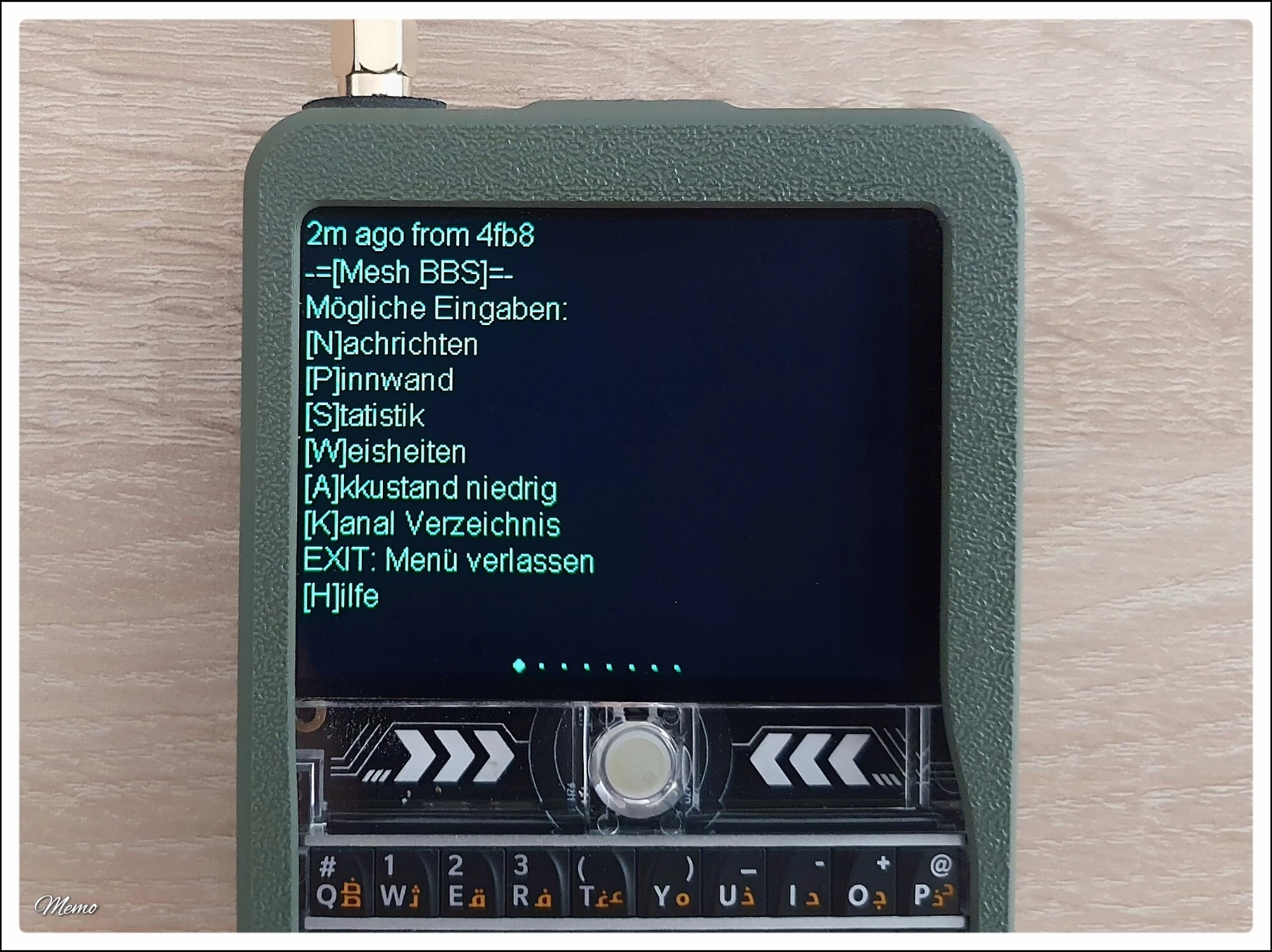
Ich habe zwar noch nie mit #Python gearbeitet, aber zum Testen habe ich einmal einige #Menüpunkte übersetzt und ein wenig an den Prompts und der #Menüstruktur gearbeitet 😀
Allerdings nur zum Testen, da der Entwickler einiges komplett neu überarbeiten will, muss ich im Anschluss wieder komplett neu anfangen.
Eine mehrsprachige Version ist laut Entwickler jedenfalls in absehbarer Zukunft nicht auf seiner To-do-Liste.
(Bildbeschreibung: Das Hauptmenü der BBS auf Deutsch übersetzt.)
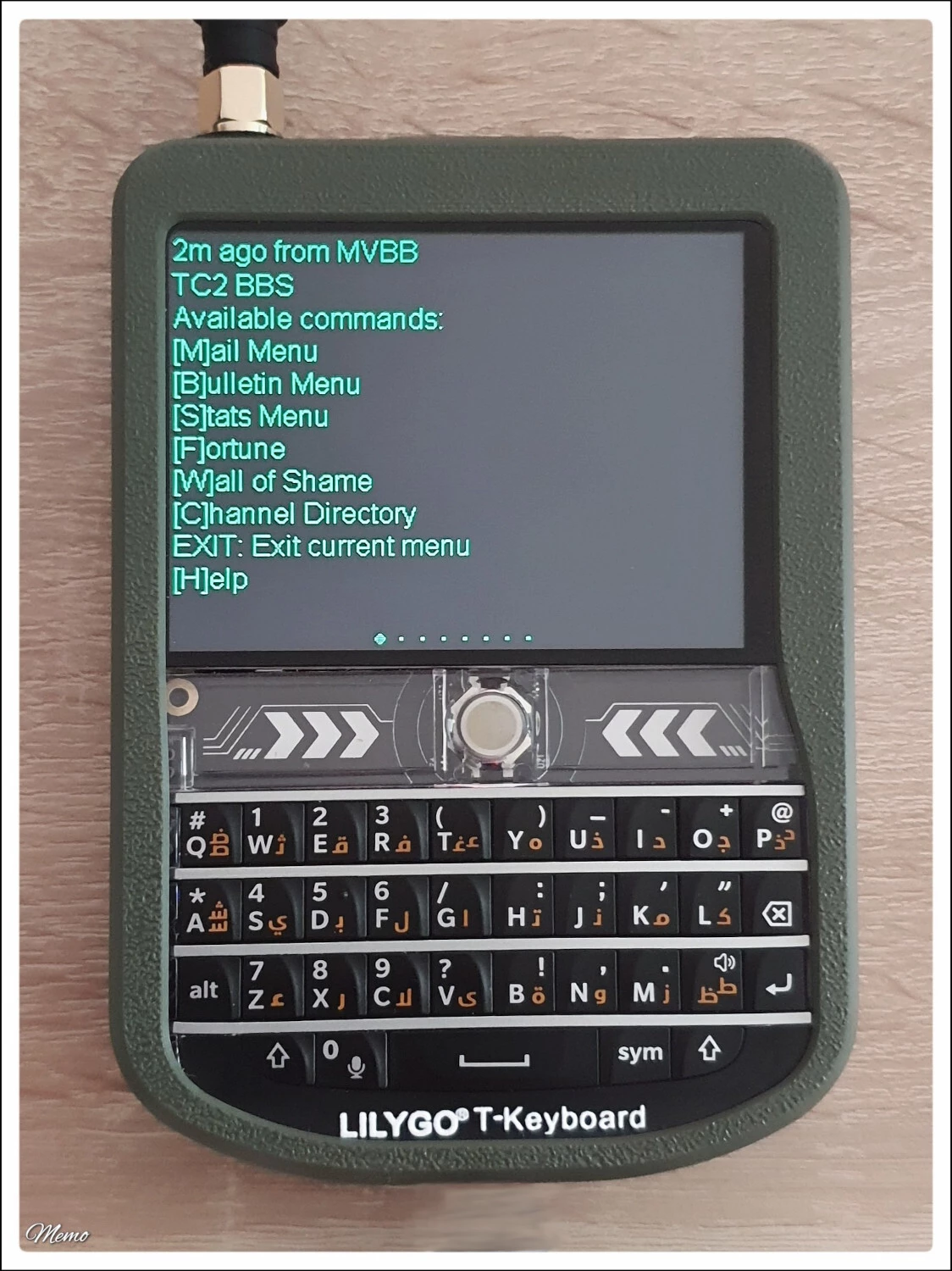
Das BBS Menü sieht übrigens auch auf dem T-Deck sehr gut aus 😀
(Bildbeschreibung: Die Aufnahme eines Meshtastic T-Decks mit dem BBS Menü auf dem Screen.)
4 Likes

Obwohl ich eigentlich schon in meiner angekündigten Internetpause bin, habe ich noch schnell das Projekt TC2-BBS-MV beendet.
Ab heute läuft das TC2-BBS (Bulletin Board System) über den Node »MVBB« im Testbetrieb.
Danke für die Zeit und Arbeit, die die Entwickler in dieses Projekt gesteckt haben.
Obwohl bestimmt noch sehr viele Änderungen und Ergänzungen eingepflegt werden, wünsche ich bereits jetzt schon viel Spaß beim Ausprobieren und Testen 😀
(Bildbeschreibung: Screenshot des BBS-Hauptmenüs in der Android-App)
One person like that
1 Comments
4 Shares
#freeware #bbs #history #floppydisk
In the 1980s, the concept of freeware evolved with the advent of Bulletin Board Systems (BBS) and shared floppy disks.Developers distributed their creations on these platforms, enabling users worldwide to access a variety of software for free
One person like that
#BBS #RetroComputing #PreviouslyFamousTaglines
This particular tagline that I posted on Google Plus adorned the group I designated The Rubber Room. 
#BBS #RetroComputing #PreviouslyFamousTaglines
The BBS world of old, as was computing in general, was male dominated--proven by this widely circulated tagline...

1 Comments
#BBS #RetroComputing #PreviouslyFamousTaglines
Greg Hewgill's Silly Little Mail Reader launched a gazillion taglines and this is another of his classics:

One person like that
#BBS #RetroComputing
Ya, I reshared posts from 2 months ago mainly because I did a search on the hashtag #BBS looking for ANSI art, if any. Also looking for vintage taglines. Back on the now-defunct GooglePlus I did a line of posts called "Previously Famous Taglines" and having found a hole in the Fediverse where that's concerned, I'm highly tempted to start that one up again on here. I did have graphics to go with 'em but I still haven't dug those up yet.
Just you wait, tho. #PreviouslyFamousTaglines kicks off with a plain text Greg Hewgill classic from Silly Little Mail Reader:
"On a clear disk you can seek forever..."
One person like that
One person like that
One person like that
1 Shares
3 Likes
1 Shares

